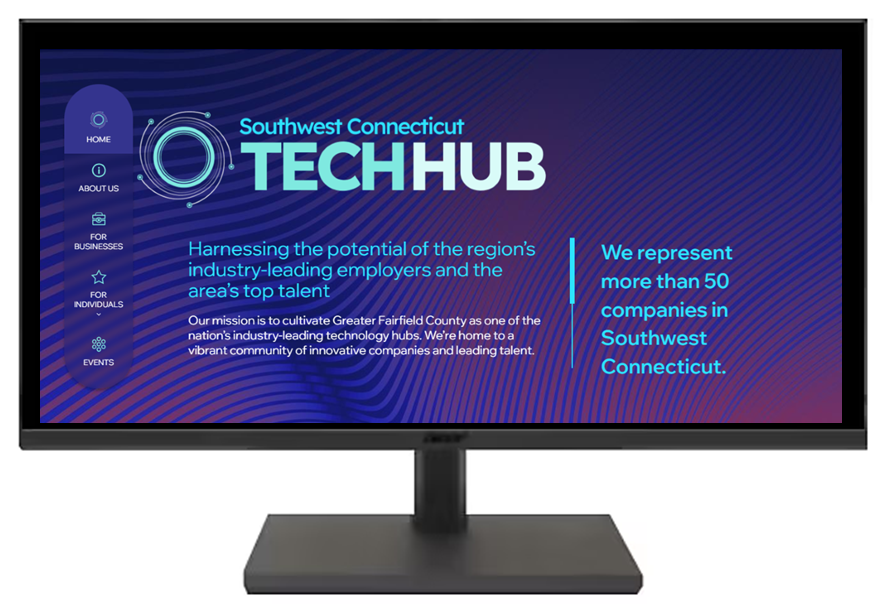Advancing Fairfield County as Tech Hub
/The goal of the Stamford Partnership is to have hundreds more area residents assume jobs in the tech sector in the coming months and tap into the necessary training to help establish Greater Fairfield County as one of the country’s most promising tech hubs.
The Stamford Partnership is a public-private consortium that brings together various constituencies and stakeholders to identify needs and improve the quality of life across Southwest Connecticut.
Stamford Partnership is a co-convener of the Southwest Connecticut Tech Hub, a community that connects the region’s tech employers with top tech talent. The Tech Hub represents more than 50 of the region’s tech-enabled and data-dependent companies.
According to nonprofit economic development group AdvanceCT, more than 60,000 Connecticut residents now work in technology in the state. That’s a number that can grow considerably, according to local officials.
Last fall, the Stamford Partnership was one of 10 backbone organizations that received Good Jobs Challenge and Strengthening Sector Partnerships Initiative grants. The grants were awarded to the state’s Office of Workforce Strategy by the U.S. Economic Development Administration. The project aims to get more Americans working and boost wage growth.
Connecticut received $24 million in federal grant funding, the most in the nation, with $2.4 million earmarked for employer engagement and workforce training by the co-conveners of the Southwest Connecticut Tech Hub. The initiative aims to train and place more than 2,000 individuals across the state’s regional partnerships in sectors such as healthcare, bioscience, information technology and manufacturing.
“Our overall goal with the Southwest Connecticut Tech Hub is to create a center of innovation across greater Fairfield County to attract companies, connect employers with a talent pool and deliver necessary training to help companies and employees capitalize on their next great tech opportunities,” explains Patricia Meyer, Director of the Good Jobs Challenge Program at the Stamford Partnership.
“The Good Jobs Challenge grant seeks to expand opportunities across diverse populations and communities, with the objective of removing systemic barriers for underrepresented workers. This effort, focused on tech in greater Fairfield County, will bring greater equity to training and hiring for residents of the region,” Meyer added.
The other co-convener of the Southwest Connecticut Tech Hub is job-readiness company The WorkPlace, based in Bridgeport, which will provide workforce development, training and upskilling resources for new tech workers.
A fundamental aspect of the endeavor is to serve all tech-dependent companies in the region.
“Stamford Health is not what most people would think of as a tech company, at least at first glance. But our organization has a distinct need for qualified tech employees all the same,” says Salvatore Mancino, Senior Vice President of Human Resources and Organization Development at Stamford Health. “The Southwest CT Tech Hub allows us to tap into proven tech talent and other areas like best practices that allow our company to innovate within the healthcare sector.”
One of the early efforts to lay the groundwork for developing a regional tech hub in Southwest Connecticut was Governor Ned Lamont’s Office of Workforce Strategy in 2019.
The executive branch department seeks to provide state residents with greater access to realizing meaningful career paths while giving employers broader access to skilled workers. Connecticut is keenly interested in filling thousands of open jobs that exist across the state.
The Stamford Partnership works to enhance the quality of life for those who live and work in Stamford and Greater Fairfield County. The partnership is part convener, part think tank, part incubator. It brings together a wide spectrum of constituencies and stakeholders to identify needs, resources and opportunities to engage leadership and prompt action to improve the city’s quality of life. It is a catalyst for debate and discussion and initiates civic projects through public, community and private sector collaborations.





























